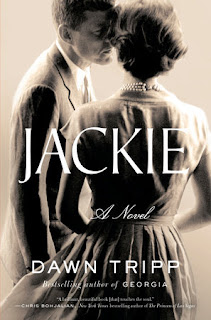 historical fiction and novellas for adult literacy. She is currently writing four cozy mystery series: the Tea by the Sea mysteries for Kensington, the Sherlock Holmes Bookshop series for Crooked Lane Books, the Catskill Resort mysteries for Penguin Random House, and the Lighthouse Library series (as Eva Gates) for Crooked Lane.
historical fiction and novellas for adult literacy. She is currently writing four cozy mystery series: the Tea by the Sea mysteries for Kensington, the Sherlock Holmes Bookshop series for Crooked Lane Books, the Catskill Resort mysteries for Penguin Random House, and the Lighthouse Library series (as Eva Gates) for Crooked Lane.
Delany is a past president of the Crime Writers of Canada and co-founder and organizer of the Women Killing It Crime Writing Festival. Her work has been nominated for the Derringer, the Bony Blithe, the Ontario Library Association Golden Oak, and the Arthur Ellis Awards. She is the recipient of the 2019 Derrick Murdoch Award for contributions to Canadian crime writing. Delany lives in Prince Edward County, Ontario.
Delany's new novel, her tenth Sherlock Holmes Bookshop mystery, is The Incident of the Book in the Nighttime.
Recently I asked the author about what she was reading. Her reply:
Visit Vicki Delany's website, Facebook page, and Twitter perch.I’m not usually one for seasonal reading. I’ll read a book anytime, and not much care about the season. But, this year I’ve accidently found myself reading two Christmas set books.
First is Everyone This Christmas Has a Secret by Benjamin Stevenson. This is a short book by the hugely popular author of Everyone in My Family has Killed Someone and Everyone on this Train is a Suspect, both of which I enjoyed enormously. The new book is in the same style as the earlier, with constant interruptions by the narrator, pointing the reader to important plot points, chatting about the rules of writing mysteries. It’s Christmas in Australia, which is considerably different from what we inCanada are used to, and that makes for a fun read too. Drinks around the pool on Christmas Day anyone?
My second Christmas read is Sherlock Holmes and the Christmas Demon by James Lovegrove. In this book, Holmes and Watson (the ‘real’ ones) go to Yorkshire in the days before Christmas, summoned by a young woman who fears she is going mad because she’s seen a Christmas Demon from the stories her mother used to tell her. Suspects all gather in the castle for the holidays and the game is definitely afoot along with seasonal festivities.
Another book I recently enjoyed is One Perfect Couple by Ruth Ware. I loved Ruth Ware’s previous books, but I shied away fromthis one for a while because the plot just seemed so cliched. A couple are chosen to participate on a reality TV show on a tropical island. A storm separates the contestants from the production crew and – gasp – people start dying. If you can get over that, the story is a good one and the characters interesting.
The Page 69 Test: Rest Ye Murdered Gentlemen.
The Page 69 Test: A Scandal in Scarlet.
The Page 69 Test: Murder in a Teacup.
Writers Read: Vicki Delany (September 2021).
The Page 69 Test: Deadly Summer Nights.
The Page 69 Test: The Game is a Footnote.
Writers Read: Vicki Delany (January 2023).
Writers Read: Vicki Delany (January 2024).
The Page 69 Test: The Sign of Four Spirits.
The Page 69 Test: A Slay Ride Together With You.
--Marshal Zeringue
































